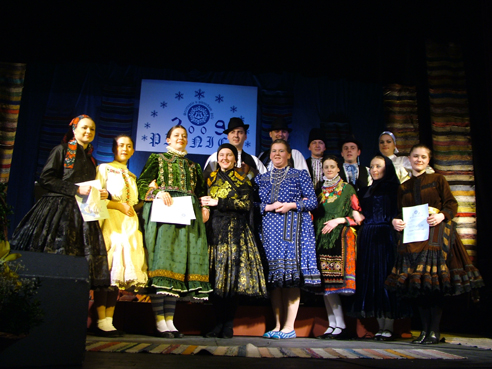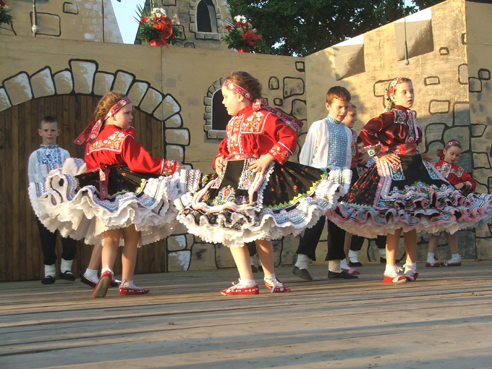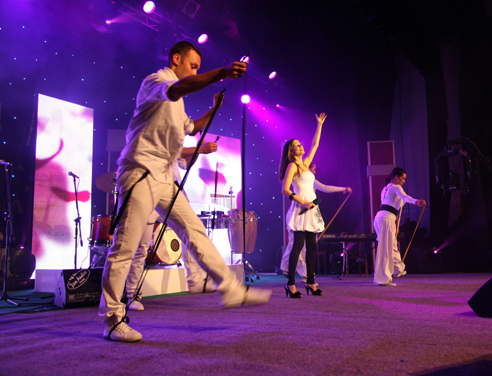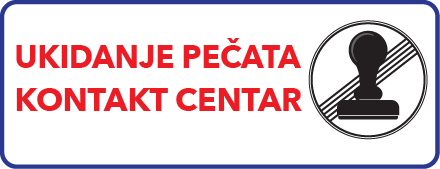Festivals and Manifestations
The term festival is rooted in Latin language festive and it means an event. Nowadays for Vojvodina Slovaks that term represents an event which is on the highest footstall of manifestations on which they can show their effort and works that have been done during the year.
Many festivals are being held in Serbia which are organized by Vojvodina Slovaks. Because of the various festivals and contents. Every festival is important for the Slovak society and it is the center of public happening for this minority. It is almost like if all cultural and art associations as much as the individuals and institutions are counting time by every festival.
|
It means that the year for Vojvodina Slovaks starts with the Festival called Stretnutie v Pivnickom poli (Meeting on the field of Pivnica). It is a music festival on which there are being sung many folk songs. Folk songs are different by the village they come from. Also this festival is specific by the way the singers are dressed, because it is very important to show the garb which is typical for the set ham.
The winter time is known by the festival which is called Prehliadka slovenskej ochotníckej divadelnej tvorby (Competition of the Slovak amateur theatre work) which is being held each year on a different place. The other theatrical Festival is called Divadelné inscenácie dolnozemských autorov (Theatrical inscenations of the Slovaks from Vojvodina, Romania and Hungaria) and it is performed in Slovak village called Pivnica.
|
With the beginning of spring time, there’s Jarné nôty (The spring trill) which is dedicated to young musicians who are into classical music. This kind of musical undertaking is conducted in Báčsky Petrovec every year. In Spring time there is being led a music and saltation festival Tancuj, tancuj... (Dance, dance...the name is also a name of one folk song) which is the biggest event for the Vojvodina Slovaks when it comes to folk music and folklore. This big undertaking is traditionally held in a village called Hložany and it lasts all day long.
The Summer brake starts with Zlatá brána (The golden gate) which is a festival for children folklorists and Slovaks from all over Vojvodina who come to a village called Kysáč to watch and enjoy the rich programme which contains not only from different choreographies and songs but also nursery rhymes and mainly, the joy of the children.
The first weekend in August is traditionally reserved for Slovenské národné slávnosti (Slovak national celebration) which is very popular here in Vojvodina. Slovaks travel from all small Slovak towns from Vojvodina to Petrovec. This festival is almost like a résumé of the folkloristic and folk music work which has been done during the past year.
|
Autumn is a time when new modern songs of many young composers are being gathered and presented on a festival called Zlatý kľúč (The golden key) in Selenča. At this time, the pupils also present themselves on theatre festival called 3xĎ in Stará Pazova and those who are talented in singing, join the festival of popular music for children which is held in Kovačica and its called Letí pieseň letí (And the song flies and flies).
In this same period there is being held an art chambering called Bienálna výstava slovenskej súčasnej tvorby (Exposition of the Slovak contemporary arts) which is organized by the Gallery of Zuzka Medveďova in Petrovec. The year is closed with the youngest festival called Festival slovenských lyrických piesní (Slovak lyrical songs), which is the only contributed by the statutory service of citizens Radio Vojvodina and it is being held in the Studio M of the radio Vojvodina.
All reckoned festivals and cultural manifestations are considered as undertakings of a great importance for the whole Slovak minority living in Serbia. Their organization and implementation is done by many cultural and art associations or cultural departments.
This part of the web page is dedicated to the detailed description of every cultural manifestation of Slovak minority that is being held in Vojvodina.
Milina Sklabinská



















